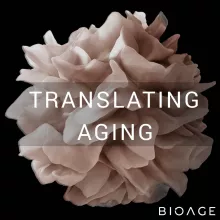Episode shownotes
Dr. Nabiha Saklayen is CEO & co-founder of Cellino, a personalized regenerative medicine company developing an AI-guided laser editing platform for autologous cell-based therapies. Cellino’s proprietary technology aims to make personalized stem cell-derived therapies scalable for the first time. Dr. Saklayen received her Ph.D. in Physics from Harvard University as a Howard Hughes Medical Institute (HHMI) International Fellow.
In this episode, she joins Chris Patil to discuss autologous cell therapy and the strides Cellino has made in cell therapy using Machine Learning and laser technology. Dr. Saklayen talks about the challenges that come with autologous cell therapy, particularly in the manufacturing and cost aspect, and how Cellino infuses automation to make this procedure easier. She discusses how machine learning is integrated in the whole process and gives a brief insight into her career as a physicist and founding Cellino. She rounds up by discussing the future of Cellino and how Cellino strives to provide solutions in cell therapy that would change the world one patient at a time and at low cost.
In this episode, you’ll learn what cell therapy is and how Dr. Saklayen, through Cellino, is reshaping the world of cell therapy and biotech as we know it.
Episode Highlights:
● What is cell therapy?
● Defining autologous cell therapies
● Examining the challenges with autologous cell therapy
● Cellino as a thought leader in the biotech industry
● The power of automation and laser therapy
● How machine learning contributes
● Dr. Saklayen’s career journey
● Going from a blood cell to a stem cell - Sendai virus and episomal vectors
● How to determine the success of an IPSC induction
● The future of Cellino
● Targeting diseases of aging
● How Cellino is providing solutions in aging aspects
● Cell therapies over small molecules
● Cellino’s goal for the next five years
Quotes:
“Cell therapy is a therapy where you make new cells for the patient and transplant them into the body to change the outcome of a disease or trajectory of a disease.”
“It's about throughput. It's about yield. It's about consistency.”
“The way we automate this process is by using machine learning algorithms that have been trained to look at images of cells and tell us which cells are high quality and which cells are not.”
“It's really amazing to be able to tap into image-based machine learning algorithms and route the autonomous self-driving car industry towards advancing a lot of the neural nets that we're using in our training.”
“I decided I want to be closer to real-world applications.”
“Working together as an industry is going to be very important.”
“Where we'd like to be in five years is we want to have our platform developed to a point where we can generate high quality patient specific cells in a reproducible manner, and do that for clinical doses.”
Links:
Email questions, comments, and feedback to podcast@bioagelabs.com
Translating Aging on Twitter: @bioagepodcast
BIOAGE Labs Website BIOAGELabs.com
BIOAGE Labs Twitter...
